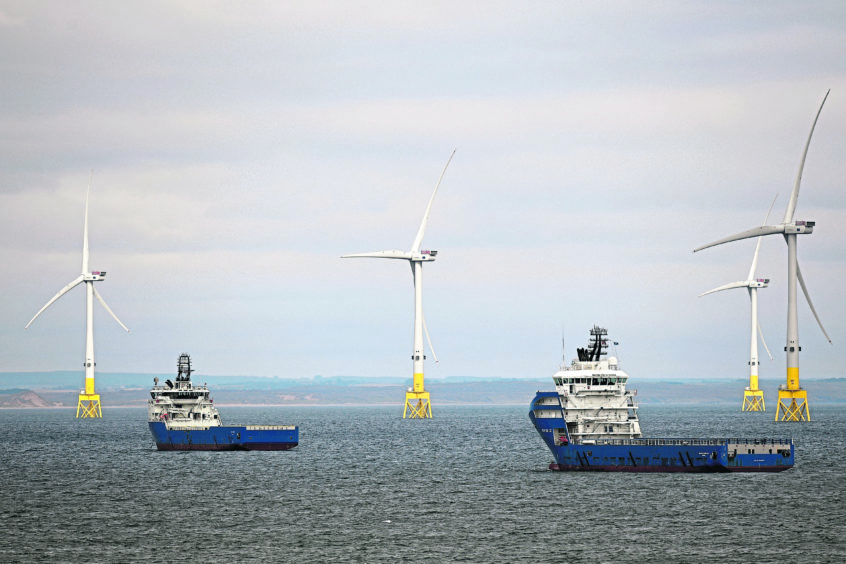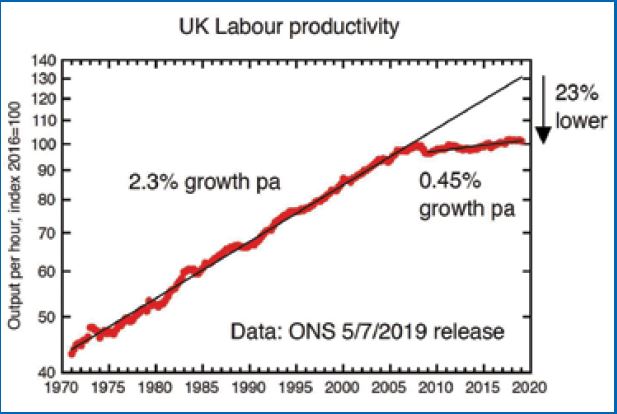
In 2013 I had the honour of being a member of Scotland’s Independent Expert Commission on Oil and Gas.
When it came to research and development, the report we produced was pretty scathing about the poor levels of funding made available by the UK Government.
We said “the exploitation of appropriate new technologies is one of the important keys to the future success of the UKCS”.
And we said that “while new technological advances have made a significant contribution to the UKCS, the level of investment in R&D in the UK has remained consistently and significantly lower than in its main competitor countries.”
The report also noted both Scottish Enterprise and the UK Governments published information showing oil and gas R&D spend for the UK only amounts to 0.3% of sales; the spend of Norway, the main competitor of the UKCS, was 4% of sales.
If we thought that was bad then, we should be more worried now, given the declared “climate emergency”.
According to figures from the Organisation for Economic Co-operation and Development (OECD), overall energy related R&D funding in the UK still amounts to no more than 3%.
Oil and gas R&D is of course just a tiny fraction of that 3%, although because of the need for decarbonisation and the development of policies such as “Net-Zero” the figure for R&D across non-oil and gas sectors is arguably considerably more important.
That said, the UK Government’s official climate change advisers, the Committee on Climate Change, has recently warned there’s a “substantial gap” between Westminster’s ambition for net zero emissions and a lack of policy to deliver it.
It says: “The UK has legislated for net-zero emissions by 2050 – now the UK Government must show it is serious about its legal obligations to tackle and prepare for climate change.” They added: “We’re not even on track to hit the old target before net zero was set.”
That’s because we simply haven’t developed the technologies to enable us to tackle this mission.
I know this because I am inundated with emails and other communications regarding research and product development globally.
The level of R&D in the UK including Scotland is tiny compared to countries in Europe and Scandinavia, North America and China.
If you’re looking for a reason why the renewables supply chain across the UK is so small and more service orientated than manufacturing, then this outrageously low R&D figure is a critical element.
The point of R&D is it feeds through to building industries of the future, creating high value jobs and dealing with big issues like climate change in a way that benefits society.
I’m not necessarily talking here about the SME that’s developed an idea for a new widget but the big mission orientated stuff that can stimulate entire economic sectors.

As pointed out by Prof Richard Jones, a physicist at Sheffield University, who on top of his scientific work has an interest in science and innovation policy, R&D boosts productivity. There has been (see his graph) a general decline in productivity growth.
This means we are finding it more difficult to create higher value products and services.
In the energy sector, this is evidenced by a failure to establish a meaningful and international supply chain in clean energy production technologies and products that can use clean energy.
That is not making it any easier for the government to achieve its ambition for net zero emissions.
As a consequence, we rely on overseas companies and import the fruits of their R&D to achieve policy aims. This makes little sense economically, industrially or socially as it’s not creating jobs, which means the tax take is lower. That hits our services.
That we need to increase the levels of energy technology related R&D is obvious. I can’t stress how important it is. But we have long known this and little has changed.
Now with Brexit around the corner, with its inevitable funding cuts, energy R&D funding levels are unlikely to improve. The chance to have done that has probably passed.
Dick Winchester is on the Scottish Government’s energy advisory board.
